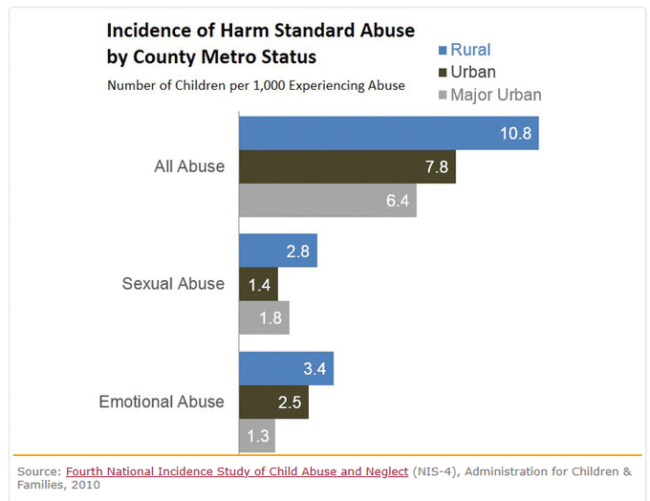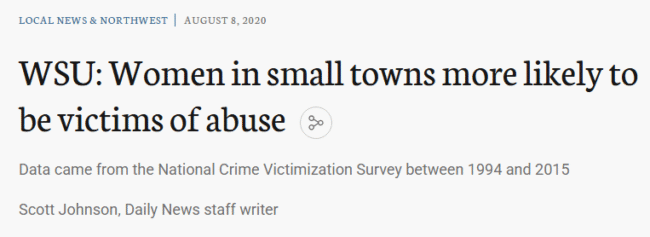When a woman living in a rural area makes the courageous decision to seek help, she’s not just up against her abuser—she’s up against an entire syst

o
When a woman living in a rural area makes the courageous decision to seek help, she’s not just up against her abuser—she’s up against an entire system that often isn’t built to protect her.
Here are some of the unique obstacles rural women face when trying to escape abuse:
🚫 1. Lack of Confidential Services
In small towns, everyone knows everyone. Survivors fear that seeking help will be the next day’s gossip—or worse, reach their abuser.
🚌 2. Limited Transportation
With no public transportation and sometimes no car of her own, getting to a shelter, courthouse, or hospital can feel nearly impossible.
📞 3. Spotty Cell Service or Internet
Some areas still lack reliable service, making it hard to call for help, search for resources, or join online support networks.
🏥 4. Few Local Services
There may be no domestic violence shelter, legal aid office, or trained trauma counselor within 100 miles. Survivors are often forced to choose between staying in danger or leaving their entire lives behind.
🧑🏽🌾 5. Cultural Pressure to “Keep It in the Family”
Tight-knit communities often value privacy and loyalty, sometimes pressuring women to stay silent to “protect” the family or community’s reputation.
⚖️ 6. Law Enforcement May Be Limited or Biased
Officers may be friends with the abuser—or dismissive of domestic violence altogether. In some areas, only one or two deputies may serve an entire county.
 👨👩👧👦 7. Few Safe Places to Go
👨👩👧👦 7. Few Safe Places to Go
If a survivor has children, pets, livestock, or farm responsibilities, the decision to leave becomes even more complicated. Shelters may not be equipped to accommodate them.
🪧 8. Fear of Retaliation Without Protection
In isolated areas, abusers may monitor survivors closely. Without immediate backup or anonymity, retaliation becomes a terrifying reality.
🧭 9. Geographic Isolation
Neighbors may live miles apart. Screams go unheard. Help can’t come quickly. This distance becomes an invisible prison.
🤐 10. Mistrust of Systems
Many rural women, especially Black, Indigenous, immigrant, and poor women, have seen how the system can fail people like them. That fear keeps them trapped.
🌿 A Closing Word:
If you are a Survivor in a rural area:
Your safety matters. Your voice matters. You are not alone.
Even when the world seems far away, your pain is not invisible here. We see you. We honor you. We believe in your right to live free from harm.
 🌾 What Women in Rural Areas Need from Their Communities
🌾 What Women in Rural Areas Need from Their Communities
10 Ways to Truly Support Survivors of Abuse
💬 1. Listen to Her
Start by listening. Rural survivors already carry fear of judgment and exposure—what they need most is safe, nonjudgmental support.
🚗 2. Help With Transportation, Quietly and Safely
Offer rides to the courthouse, clinic, or shelter without drawing attention. A simple offer like “I’m going that way anyway” can be life-saving in a town with no public transit.
📞 3. Protect Her Privacy
In small communities, gossip spreads fast. Keep her confidence sacred. Even well-meaning comments can accidentally alert an abuser or endanger her plans.
🧭 4. Help Her Access Resources From Outside the Area
Assist with phone calls, printing documents, or finding services that may be hours away. Sometimes the safest support isn’t local—it’s digital, legal, or in another county.
🛖 5. Offer Temporary, Low-Key Shelter Options
If you’re a trusted friend or neighbor, offering a safe place—even for one night—can mean everything. Especially when the nearest shelter is full or far away.
💻 6. Create or Support Safe Online Spaces
Help her access online support groups, telehealth, or domestic violence chat lines. This is especially critical when there’s no local counseling or advocacy.
🧺 7. Pitch In With Practical Needs
Help with childcare, meals, livestock, or errands if she’s making a move. Tangible support allows her to focus on safety without worrying about basic survival.
🤝 8. Back Her Up Publicly, Quietly, or Legally
Whether it’s testifying, walking her to court, or just standing beside her at church—your quiet strength may be the only thing keeping her safe in public.
🕊️ 9. Stop Protecting Abusers “Because He’s a Good Guy”
Challenge the idea that abusers can’t also be “nice,” “funny,” or “helpful.” Harm is harm. Communities that make excuses for abusers isolate Survivors.
✨ 10. Make It Clear: She’s Not Alone
She may feel isolated—but your steady presence, your gentle check-ins, your refusal to shame her… these are sacred acts of resistance. They tell her:
“You are not invisible here. You are not alone.”
 👨👩👧👦
👨👩👧👦  🌾 What Women in Rural Areas Need from Their Communities
🌾 What Women in Rural Areas Need from Their Communities